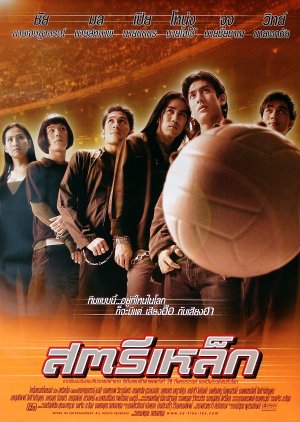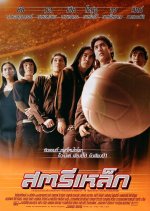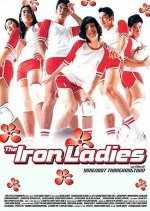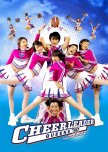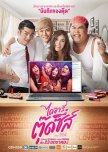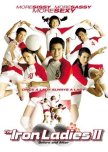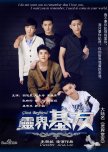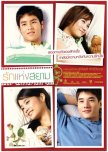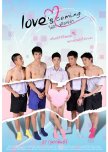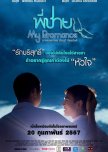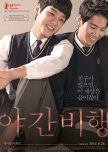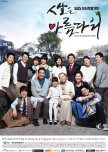 Ask MDL: And Now For Something Different
Ask MDL: And Now For Something Different It is set in 1996 when the real team competed and won the national championships in Thailand. Two queer players had been constantly overlooked by volleyball coaches because of their appearance. However, when a local team changes coaches, the new coach holds tryouts for a new team. When Mon and Jung are selected, most of the old players resign, leaving the new coach, Coach Bee, in a sticky predicament. Mon and Jung are then forced to enlist the help of other gay and transgender friends who they used to play volleyball with in university. These new players include Wit, who hasn't told his fiancée he is gay, Pia, a transgender dancer and Nong, a gay army conscript. When the competition begins, all players but one in the team are gay or transgender. Because of their appearance on court, many of the match officials intend to ban the team, soon dubbed "The Iron Ladies", from the tournament. However, seeing how much the team is liked by the crowd soon changes many of their opinions. (Source: Wikipedia) Edit Translation
- English
- magyar / magyar nyelv
- dansk
- Norsk
- Native Title: สตรีเหล็ก
- Also Known As: Attack Number Half , Satree Lek , Satri Lek
- Screenwriter: Keng Jira Maligool, Visuttchai Boonyakarnjawa
- Screenwriter & Director: Yongyoot Thongkongtoon
- Genres: Comedy, Drama, Sports
Cast & Credits
- Tik Jesdaporn PholdeeChaiMain Role
- A Suraphan ChaopaknamMuengmanSupport Role
- Nui Sujira ArunpipatMukSupport Role
- Jojo MioxyNongSupport Role
- Coco Gokgorn BenchadhikulPiaSupport Role
- Anucha ChatkaewJuneSupport Role
Reviews

The struggle of LBGTQ+ people and the representation of stereotypes in Thai cinema (I)
'The Iron Ladies' ('Satree lek' - 2000) is a comedy-drama film written by Visuttchai Boonyakarnjawa and Jira Maligool.Based on the true story of a Thai men's volleyball team competing in the 1996 national championship with a squad made up primarily of gays and kathoey (transgender people), the award-winning film explores the struggles that are still present in the Thai LGBTQ+ community through through comedy, despite Thailand's international image as a country open to gay and transgender people.
In the greatest of storytelling traditions, Youngyooth Thongkonthun's debut feature is a true fairy tale with a happy ending, and marked a milestone in LGBTQ+ representation in the media, resonating recognition from international film festivals like the Festival Toronto Film International and several others.
Set in 1996, two gay amateur volleyball players, Chai (Jesdaporn Pholdee) and Mon (Sahaphap Tor) seek to participate in a championship despite being discriminated against.
Mon, who becomes the leader of the team, was a very talented player who constantly failed to be selected for various teams because he was gay. Chai, Mon's best friend, also experienced the same treatment but was always optimistic about things.
Their chance comes when Coach Bee is selected to form a winning team and she announces that the team will be open for everyone to try out. But when he selects Chai and Mon to be part of the team, some of the homophobic players quit in protest.
Bee then asks Mon to find some of his friends to join the team. They select Nong, a gay army sergeant; Pia, the transsexual star of a cabaret show; and Wit, whose parents don't know that their only son is gay.
Written by Strand Releasing. 'The Iron Ladies stars Jesdaporn Pholdee, Sahaphap Tor, Ekachai Buranapanit, Giorgio Maiocchi, Chaicharn Nimpulsawasdi, Kokkorn Benjathikoon and Anucha Chatkaew.
Cinematography was handled by Jira Maligool and editing by Sunij Asavinikul.
Most of them are gay and kathoey, except for one cishet (cisgender and straight) man who struggles to be accepted into the team. All of them must find their inner strengths and come together to face these challenges and participate in the national championship.
Through humor, Thongkonthun touches on sensitive topics that would otherwise have been difficult to cover at the end of the last century and the beginning of this one. It was then the era of depicting homosexuals and transgenders in the media under the old-fashioned cliché of the comic friend or villain, which even today persists on Thai television, but The Iron Ladies reveals the depth of these generally superficial characters.
Based on stereotypical representations of homosexuals (very flamboyant, feminine, happy, fearless), the film uses clichés that were common in the 2000s and are still prevalent today, and takes the stereotypes, gives them depth and appropriates them.
The film stands out for reflecting the struggle of LBGTQ+ people: while the team faces various challenges, each member of the team represents, through their own story, a societal problem that the community faces.
The cast does not fail to make their characters relatable and real within their banal and limited representation, as they mimic the tropes surrounding the representation of LGBTQ+ people in the early 2000s.
Through silly or quick comments, the film's dialogue skillfully addresses the struggles and hurtful comments prevalent in society towards LGBTQ+ people. Through absurd but witty scenes, the characters reflect and talk about love interests, being loved as a transgender person, buying items at a market, making friends, participating in sports, and being discriminated against. All this wrapped in a background of comedy and extravagant shots with vibrant electro music.
'The Iron Ladies' manages to generate controversy and reflection among (inter)national audiences about the representation and behavior towards the LGBTQ+ community.
However, the film is a predictable and over-the-top cliché in every way. Is it worth our attention? Absolutely yes, as it is a piece of history and contextualizing it will give you another view of the stereotypical image of Thailand. However, be aware of the large amount of hyper-shouting.
Note: The review of the sequel to 'The Iron Ladies' 2003 can be found, in MDL, on the page dedicated to this film on said platform.

